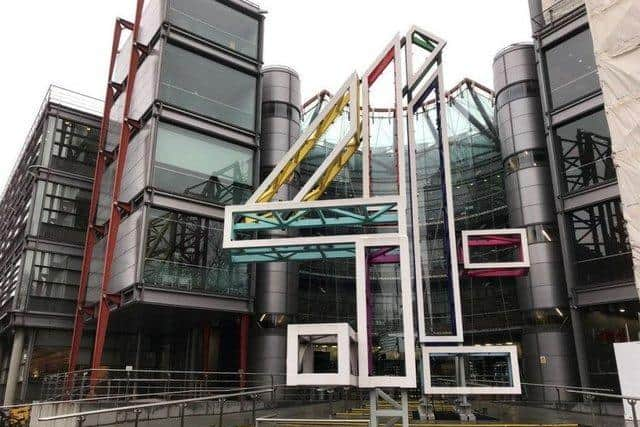Analysis: Tory ministers should listen to industry over Channel 4 privatisation plans
As well as a hostile opposition, Tory ministers may have to contend with a backlash from within their own party.
Former Scottish Conservative leader Ruth Davidson called it the "opposite of levelling up" and pointed to the thriving independent TV sector in Glasgow.
Advertisement
Hide AdAdvertisement
Hide AdThe proposals are a source of major concern for the industry in Scotland.


C4 has a creative hub in Glasgow. As a "publisher-broadcaster", the channel works with around 300 independent companies across the UK every year, according to its website.
It has to commission a certain amount of content from outside London, and last year its spend in the "nations and regions" hit a record high.
There are fears privatisation would threaten this important creative ecosystem.
It doesn't help that UK Culture Secretary Nadine Dorries previously appeared to misunderstand C4's unique model.
Set up under Margaret Thatcher's Conservative government in 1982, it is publicly owned but funded through advertising.
Despite this, Ms Dorries talked of it being "in receipt of public money".
She argues government ownership "is holding Channel 4 back from competing against streaming giants like Netflix and Amazon" and insists privatisation would give it "the tools and freedom to flourish and thrive as a public service broadcaster".
Advertisement
Hide AdAdvertisement
Hide AdThe cash raised from the sale would be reinvested "into levelling up the creative sector,” she said.
Comparisons with Netflix and Amazon are generally unhelpful. For one thing, they have no equivalent of Channel 4 News.
There is also deep suspicion over the motives of Tory ministers.
Is there an element of revenge over critical or “biased” news coverage, such as around Brexit?
Tory MP Julian Knight, chair of the Digital, Culture, Media and Sport Committee, called this the “elephant in the room”.
The prospect leaves a bad taste in the mouth. Those in power are often poor judges of journalism.
This will be a long process, and any legislation will have to pass through the Commons and the Lords.
It is vital decisions are made for the right reasons – and that Scotland’s independent screen sector does not suffer.
UK ministers should listen carefully to those on the ground.
Comments
Want to join the conversation? Please or to comment on this article.
